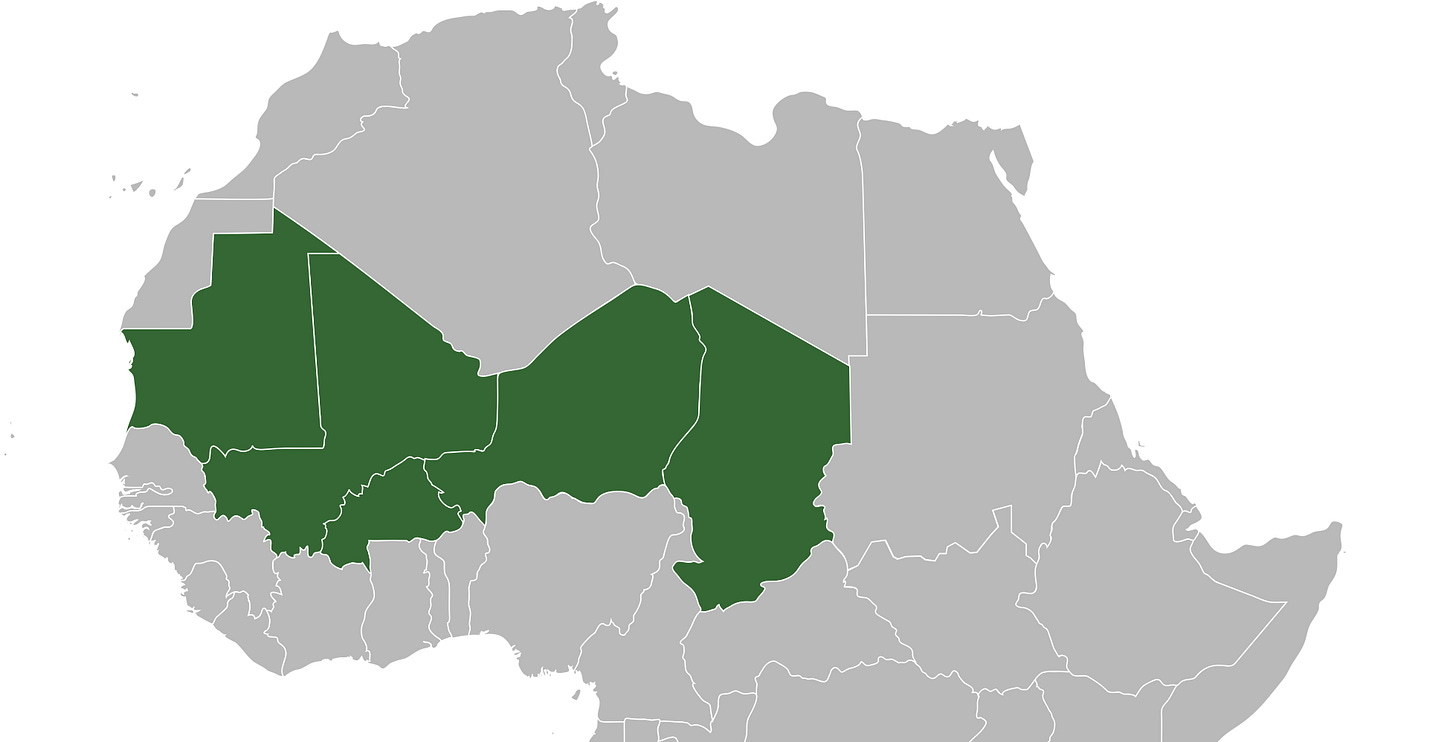Coups and Counter-Coups in West Africa Threaten Regional Stability
Sahel coups invite Russian influence, weaken fragile states, and fuel migration and extremist threats across the region.
West Africa’s Sahel has become a graveyard of democratic transitions. Coups have toppled governments in Mali, Burkina Faso, Guinea, and Niger—each justified as a response to insecurity but rooted in deep institutional weakness. Another fragile civilian government has now fallen, perpetuating the cycle.
Image: “G5 Sahel map” by JayCoop, licensed under CC BY-SA 4.0
France, long the region’s primary security partner, is withdrawing troops amid rising resentment. Into the vacuum steps Russia, via the Wagner Group, trading security services for mineral concessions. China advances quietly through infrastructure investments that bind resource flows eastward.
The consequences ripple outward. Sahel instability incubates jihadist groups tied to al-Qaeda and ISIS, threatening coastal states from Nigeria to Côte d’Ivoire. Mass displacement fuels migration northward, intensifying Europe’s political debates. Control over gold, uranium, and rare earths adds a global dimension as powers vie for access.
West Africa is thus more than a regional crisis—it is a frontline in the contest over resources, influence, and fragile sovereignty. Each coup deepens the vicious cycle: weaker institutions invite more external meddling, which corrodes sovereignty further.
Our Take: The true red line is institutional collapse. Once governance erodes, no foreign power—Paris, Moscow, or Beijing—can impose stability.

